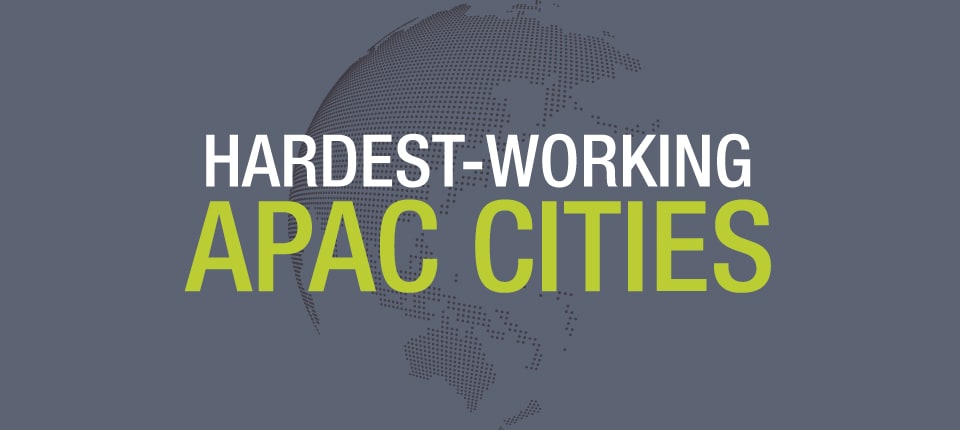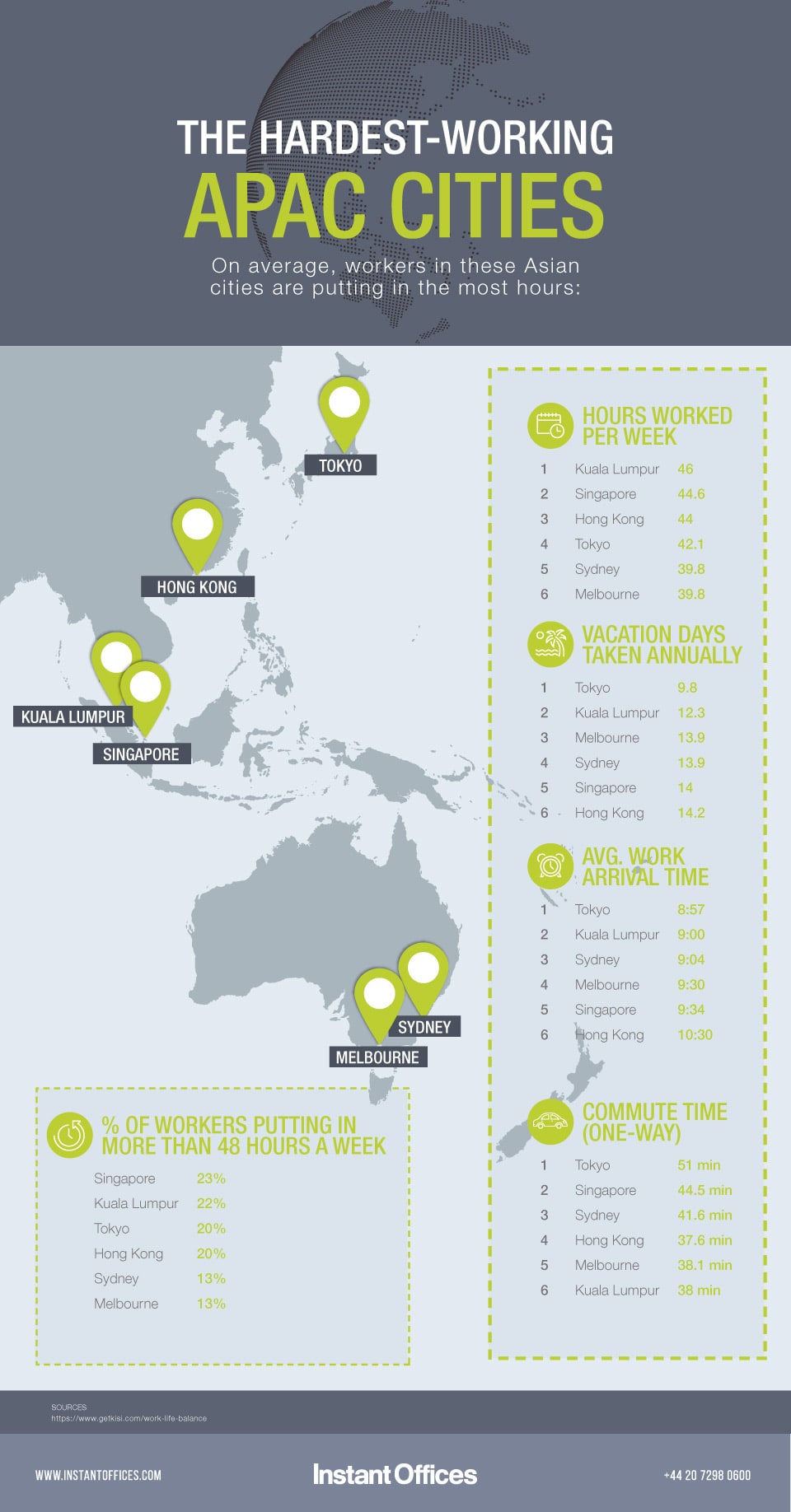With employees working some of the longest average weekly hours overall, Tokyo, Malaysia, Hong Kong and Singapore are some of the hardest-working cities in the Asia-Pacific region, but how do others compare?
Tokyo Leading the Way
A recent study by a mobile technology company found that, on average, workers in Asian cities are putting in the most hours. According to the study, out of 40 international cities, Tokyo employees are working the hardest. Singapore is close behind in second place and Kuala Lumpur in fourth.
The work intensity score in these APAC cities was as follows:
- Tokyo: 100
- Singapore: 95.4
- Kuala Lumpur: 93.3
This work intensity score was based on several factors per city, including the length of commute, arrival time at work, hours worked per week, and vacation days taken. Here’s what the survey showed about workplace trends and work-life balance in major APAC cities:
Hardest Working Cities
- 46 hours worked a week
- 22% of workers put in more than 48 hours a week
- 12.3 vacation days taken annually
- 9:00 arrival time
- 38 minutes commute (one way)
- 44.6 hours worked a week
- 23% of workers put in more than 48 hours a week
- 14 vacation days taken annually
- 9:34 arrival time
- 44.5 minutes commute (one way)
- 44 hours worked a week
- 20% of workers put in more than 48 hours a week
- 14.2 vacation days taken annually
- 10:30 arrival time
- 37.6 minutes commute (one way)
- 42.1 hours worked a week
- 20% of workers put in more than 48 hours a week
- 9.8 vacation days taken annually
- 8:57 arrival time
- 51 minutes commute (one way)
- 39.8 hours worked a week
- 13% of workers put in more than 48 hours a week
- 13.9 vacation days taken annually
- 9:04 arrival time
- 41.6 minutes commute (one way)
- 39.8 hours worked a week
- 13% of workers put in more than 48 hours a week
- 13.9 vacation days taken annually
- 9:30 arrival time
- 38.1 minutes commute (one way)
Kuala Lumpur has the longest working week of all the cities surveyed, while Tokyo has the longest daily commutes on the list. Things are a little bit more laid back in Australia, with Sydney and Melbourne workers putting in 39.8 hours a week and enduring significantly shorter commutes than their neighbours in Asia.
(Click to enlarge)
The Impact of Tech on Productivity
Businesses across the APAC region are also driving digital transformation efforts in the workplace, with the primary goal of improving employee productivity and streamlining operations. There is a strong focus on artificial intelligence (AI) and automation when it comes to boosting productivity levels.
According to Gartner, the augmentation of AI technology is expected to generate $2.9 trillion in business value in 2021, while also recovering 6.2 billion hours of worker productivity.
Microsoft recently commissioned Forbes Insights and Forrester Consulting to study the benefits of AI for knowledge workers. The Forbes Insights covered over 350 executives and found that 80% say their businesses need to start mastering the art of collaboration between humans and machines. Nearly 85% of those surveyed agree that AI can streamlines processes, which gives knowledge workers more free time to focus on creative, intuitive and laterally thinking activities.
Top Tech Priorities in Asia-Pacific
According to a survey on priorities by Computer Weekly/TechTarget IT – which covered 1,000 IT decision-makers in APAC – 35% are looking to harness technologies that improve employee experience and productivity;
It’s also interesting to note that demand for flexible workspace in APAC outstripped global markets in 2018, which suggests a future cultural shift towards more agile and flexible working arrangements. By cutting down on commuting times and reducing overheads, APAC companies could leverage the flex workspace trend to boost productivity even further.
Looking for Office Space?
We Operate in Some of the World’s Top Cities:
London, New York, San Francisco, Paris, Singapore, Hong Kong,
Search more locations

